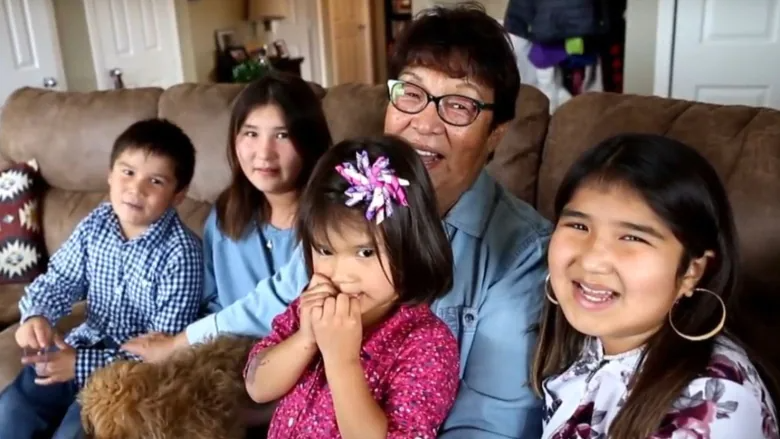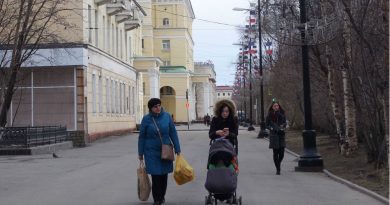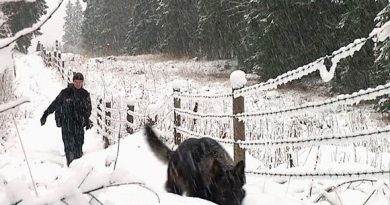UNESCO highlighting importance of Indigenous languages in 10-year plan

UNESCO held conference this month on its action plan on decade of Indigenous languages
For Alice Rigney, speaking her Dene language connects her to her ancestors and to the land.
Growing up in Jackfish Lake on the Athabasca River, Rigney said most people around her spoke either Dene or Cree languages.
Now, “we’re losing it,” she said.
“I believe that if we don’t use [the language], we’re going to lose it.”
A 10-year action plan by the United Nations Educational, Scientific and Cultural Organization (UNESCO) speaks to Rigney’s concerns and addresses the need to preserve and grow Indigenous languages internationally.
UNESCO has declared 2022-2032 a decade of Indigenous language and detailed its global action plan at an event last week in France.
In the action plan, the agency said that freedom for people to use their chosen language “is essential for human dignity.”
“An urgent need exists, therefore, to protect, revitalize and promote Indigenous languages around the world,” the plan states.
At least 40 per cent of the more than 6,700 languages spoken around the world are threatened with extinction, according to a UNESCO news release.
Though Jaco Du Toit, a representative of UNESCO, said it’s difficult to measure the exact statistics on the decline of Indigenous languages.
The first five years of the plan are a “scale up” period. That involves engaging UN members and relevant community groups to “mobilize financial resources” and establish projects and partnerships.
Du Toit said that initial phase is intended to create a framework for action. For that reason, he said, it’s purposely vague.
“We need to make sure that the necessary mechanisms are in place that will sustain this 10 year [plan].”
UNESCO will then conduct a mid-term review in 2027, then two years of strategizing how best to continue promoting Indigenous languages beyond 2032, and a final year dedicated to integration.
What exactly that integration looks like remains to be seen but it will aim to increase access to services, education and recreation in Indigenous languages.
N.W.T. ‘right up there’ in promoting Indigenous languages
Angela James is the director of Indigenous language revitalization with the N.W.T. government. She said the department of Education, Culture and Employment (ECE) attended webinars prior to the start of UNESCO’s international decade of Indigenous languages.
“What we realized is that the N.W.T. is right up there in terms of making sure that we are strengthening, revitalizing and promoting Indigenous languages,” she said.
As examples, James pointed to ECE’s own Indigenous language action plan, promoting language in classrooms, and the Mentor Apprentice Program (MAP) that pairs fluent speakers with adult language learners — something that James herself is participating in.
She said UNESCO’s plan sheds a light on something the N.W.T. is already making a priority.
“It’s critical to pay attention to Indigenous languages,” she said. “And if we don’t, it’s unconscionable.”
Aluki Kotierk, president of Nunavut Tunngavik Inc., is a co-chair of the UNESCO initiative’s global task force, in charge of engaging members and providing input into the action plan.
At the Dec. 13 UNESCO event, she spoke about language requirements as a right as laid out in articles 13 and 14 of the United Nations Declaration on the Rights of Indigenous Peoples (UNDRIP).
Kotierk emphasized the need for global collaboration and partnership beyond Indigenous communities.
“Especially because, in many instances, it is those member states that have played an active role in diminishing the strength of our languages,” Kotierk said.
In Fort Chipewyan, Alta., where Rigney lives now, there’s a population of about 850 people. She said that maybe 25 or so still speak Dene.
Rigney teaches her Dene language to anyone who wants to learn. She offers virtual sessions over Zoom for about an hour, five days a week.
Dëne Sųłıné is Rigney’s mother tongue. It’s the only language she spoke until the age of five when she went to residential school. There she would be punished for speaking her language.
Once she left the school, Rigney said re-learning her language was part of her healing journey, and now it’s a cornerstone of her life.
“I speak it to my grandchildren, I now think in the Dene language, I pray in the Dene language … I even speak Dene to my dog.”
Related stories from around the North:
Canada: Mark Indigenous languages decade by making Inuktitut official in Canada: Inuit UN rep, The Canadian Press
Finland: Everyone encouraged to boost Sami language visibility in Finland, Norway and Sweden this week, Eye on the Arctic
Norway: Indigenous and minority language names for Norway now have official status, The Independent Barents Observer
Russia: German project to house everything published in Siberian and Arctic languages to seek new funding, Eye on the Arctic
Sweden: Can cross-border cooperation help decolonize Sami-language education, Eye on the Arctic
United States: Inuit leaders applaud UN move to designate International Decade of Indigenous Languages, Eye on the Arctic



